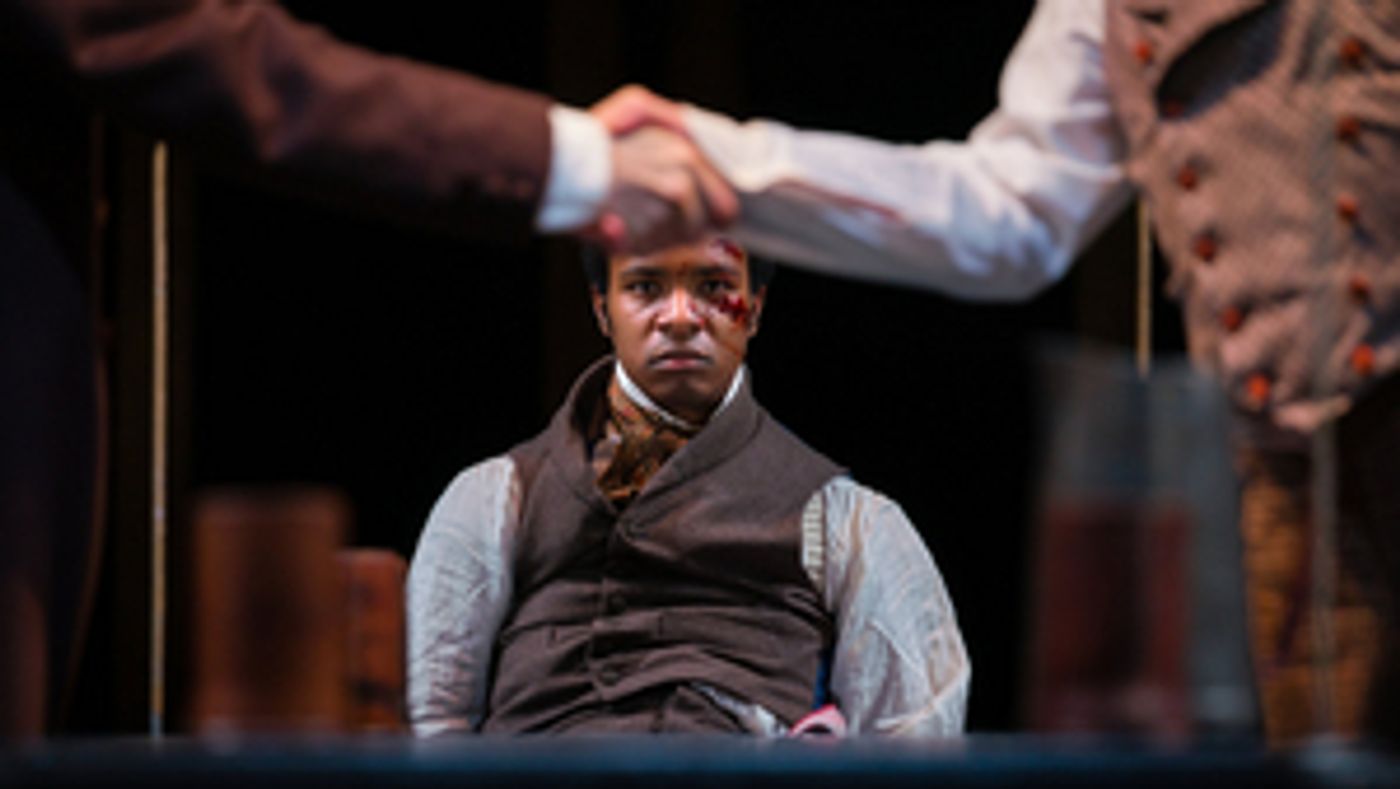Review: THE WHIP, Swan Theatre

In Juliet Gilkes Romero's new play, The Whip, the vague impression that most contemporary Brits hold - that some time, long ago (and centuries before those nasty Americans), the UK outlawed the slave trade and immediately became the good guys, on the side of the infinitely abused Africans as they fought for their emancipation - is debunked. It wasn't quite like that.
Alexander Boyd is a Whiggish reformer, from a long line of reformers, and, as Chief Whip in his party, he's building a coalition to steer a bill through Parliament to abolish slavery throughout the Empire. His problem is that, not just across the aisle, but behind him too, MPs (men, landowners, merchants), own slaves in their colonial businesses and they're not overly keen to give up their property by setting free the men, women and children who work for nothing - at the end of a whip.
Boyd, lobbied by men who know their time will soon be up - even they could see that 800,000 souls could not be held in chains indefinitely - stitches together a plan that calls for freedom to be followed by a seven year apprenticeship scheme, a kind of unpaid induction to life as a worker, the slaveowners getting their work done at no cost - again. For their own good, doncha think old boy?
That's a lot of exposition and this is a play in which exposition is never shortchanged. Men stand and explain their positions (often repeatedly) and the arguments advance at glacial pace, fuelling the three hours running time. At one point, a paragraph is read verbatim from a newspaper - never a sign that drama is triumphing over lecturing.
Meanwhile, Boyd is also fighting for improvements in the appalling conditions that prevail in Lancashire's mill towns, the destination of the cotton picked by American slaves. He gets a lesson on that arena of misery from his hired help, Horatia, who has worked on the looms since the age of five and lost her own daughter in a covered-up industrial accident. Inexplicably, Horatia found both the means to relocate to London and the opportunity to learn to read and write, giving her tools denied to the vast majority of 19th century women caught in her terrible situation.
En route there are allusions to environmental catastrophe, the nascent suffragette movement, corrupt elites, Brexity international trade regulation and much else. Understandably, the drama (when, for example, Horatia tends to the wounds of runaway slave and Parliamentary assistant, Edmund, and something like romance may be blossoming) is swamped by all these issues jostling for our attention.
Cutting through the forest of words, the actors do what they can. Richard Clothier (whose hair alone should be in with a shout of an Olivier nomination for Best Supporting Actor) gives Alexander Boyd an emotional incontinence that fits more with 21st century social media than 19th century Parliament. As written, the part hardly suggests the kind of quiet, scheming fixer usually found in the office of Chief Whip.
Katherine Pearce's Horatia Poskitt overcooks the stereotype Northerner, all potato and kidney pies, straight talking and common sense. So too and set of self-serving mill-owner MPs, who stop just shy of twirling a moustache in their villainy. It's the kind of stuff of which a little goes a long way - but (that 165 minutes running time again) we get a lot.
The best work (and the best parts) is done by Debbie Korley as Mercy Pryce, the runaway slave sent on a speaking tour by Boyd to support the abolitionist cause, and Corey Montague-Sholay as Boyd's assistant, Edmund, caught between two worlds.
Korley moves seamlessly between a refined English accent, a slave Bajan voice and (in an heartbreaking scene) her native West African dialect. She also retains a personal dignity, whilst never allowing us to forget the torture she has suffered.
Montague-Sholay delivers the best speech of the play, analysing how slavery does not just crush a man, but excavates his history, hollowing out his soul, destroying his very self. It's powerful stuff, but it does serve to undermine a key theme of the play - the parallels between the struggles for emancipation, workers' rights and female suffrage. Rather like The Holocaust, colonial slavery resists any comparators - its unique evil is beyond any other institution.
The Whip's ambition is laudable, its story important and its anger palpable. Unfortunately, its drama struggles to breathe in this whirlpool of ideas and issues.
The Whip continues at The Swan Theatre, Stratford-upon-Avon until 21 March.
Photo Steve Tanner
Reader Reviews
Videos

